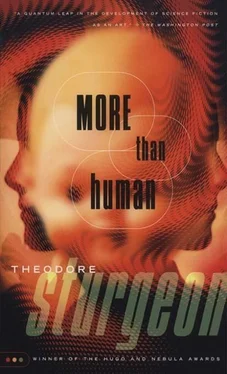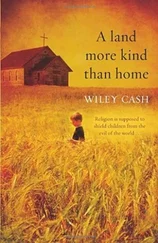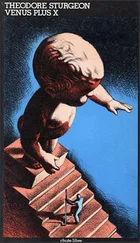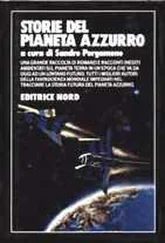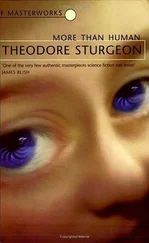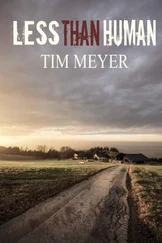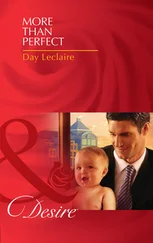Theodore Sturgeon - More Than Human
Здесь есть возможность читать онлайн «Theodore Sturgeon - More Than Human» весь текст электронной книги совершенно бесплатно (целиком полную версию без сокращений). В некоторых случаях можно слушать аудио, скачать через торрент в формате fb2 и присутствует краткое содержание. Год выпуска: 1953, Жанр: Фантастика и фэнтези, на английском языке. Описание произведения, (предисловие) а так же отзывы посетителей доступны на портале библиотеки ЛибКат.
- Название:More Than Human
- Автор:
- Жанр:
- Год:1953
- ISBN:нет данных
- Рейтинг книги:5 / 5. Голосов: 1
-
Избранное:Добавить в избранное
- Отзывы:
-
Ваша оценка:
- 100
- 1
- 2
- 3
- 4
- 5
More Than Human: краткое содержание, описание и аннотация
Предлагаем к чтению аннотацию, описание, краткое содержание или предисловие (зависит от того, что написал сам автор книги «More Than Human»). Если вы не нашли необходимую информацию о книге — напишите в комментариях, мы постараемся отыскать её.
More Than Human — читать онлайн бесплатно полную книгу (весь текст) целиком
Ниже представлен текст книги, разбитый по страницам. Система сохранения места последней прочитанной страницы, позволяет с удобством читать онлайн бесплатно книгу «More Than Human», без необходимости каждый раз заново искать на чём Вы остановились. Поставьте закладку, и сможете в любой момент перейти на страницу, на которой закончили чтение.
Интервал:
Закладка:
‘You think he’s going to be like that?’
‘Isn’t he like a two-year-old?’
‘First I ever saw six foot tall.’
She snorted in half-pretended annoyance. ‘We’ll raise him up just like a child.’
He was quiet for a time. Then. ‘What’ll we call him?’
‘Not Jack,’ she said before she could stop herself.
He grunted an agreement. He didn’t know quite what to say then.
She said, ‘We’ll bide our time about that. He’s got his own name. It wouldn’t be right to put another to him. You just wait. He’ll get back to where he remembers it.’
He thought about it for a long time. He said, ‘Ma, I hope we’re doing the right thing.’ But by then she was asleep.
There were miracles.
The Prodds thought of them as achievements, as successes, but they were miracles. There was the time when Prodd found two strong hands at the other end of a piece of 12 x 12 he was snaking out of the barn. There was the time Mrs Prodd found her patient holding a ball of yarn, holding it and looking at it only because it was red. There was the time he found a full bucket by the pump and brought it inside. It was a long while, however, before he learned to work the handle.
When he had been there a year Mrs Prodd remembered and baked him a cake. Impulsively she put four candles on it. The Prodds beamed at him as he stared at the little flames, fascinated. His strange eyes caught and held hers, then Prodd’s. ‘Blow it out, son.’
Perhaps he visualized the act. Perhaps it was the result of the warmth outflowing from the couple, the wishing for him, the warmth of caring. He bent his head and blew. They laughed together and rose and came to him, and Prodd thumped his shoulder and Mrs Prodd kissed his cheek.
Something twisted inside him. His eyes rolled up until, for a moment, only the whites showed. The frozen grief he carried slumped and flooded him. This wasn’t the call, the contact, the exchange he had experienced with Evelyn. It was not even like it, except in degree. But because he could now feel to such a degree, he was aware of his loss, and he did just what he had done when first he lost it. He cried.
It was the same shrill tortured weeping that had led Prodd to him in the darkening wood a year ago. This room was too small to contain it. Mrs Prodd had never heard him make a sound before. Prodd had, that first night. It would be hard to say whether it was worse to listen to such a sound or to listen to it again.
Mrs Prodd put her arms around his head and cooed small syllables to him. Prodd balanced himself awkwardly near by, put out a hand, changed his mind, and finally retreated into a futile reiteration: ‘Aw. Aw… Aw, now.’
In its own time, the weeping stopped. Sniffling, he looked at them each in turn. Something new was in his face; it was as if the bronze mask over which his facial skin was stretched had disappeared. ‘I’m sorry,’ Prodd said. ‘Reckon we did something wrong.’
‘It wasn’t wrong,’ said his wife. ‘You’ll see.’
He got a name.
The night he cried, he discovered consciously that if he wished, he could absorb a message, a meaning, from those about him. It had happened before, but it happened as the wind happened to blow on him, as reflexively as a sneeze or a shiver. He began to hold and turn this ability, as once he had held and turned the ball of yarn. The sounds called speech still meant little to him, but he began to detect the difference between speech directed to him and that which did not concern him. He never really learned to hear speech; instead, ideas were transmitted to him directly. Ideas in themselves are formless, and it is hardly surprising that he learned very slowly to give ideas the form of speech.
‘What’s your name?’ Prodd asked him suddenly one day. They were filling the horse trough from the cistern and there was that about water running and running in the sun which tugged deeply at the idiot. Utterly absorbed, he was jolted by the question. He looked up and found his gaze locked with Prodd’s.
Name. He made a reaching, a flash of demand, and it returned to him carrying what might be called a definition. It came, though, as pure concept. ‘ Name ’ is the single thing which is me and what I have done and been and learned.
It was all there, waiting for that single symbol, a name. All the wandering, the hunger, the loss, the thing which is worse than loss, called lack. There was a dim and subtle awareness that even here, with the Prodds, he was not a something, but a substitute for something.
All alone.
He tried to say it. Directly from Prodd he took the concept and its verbal coding and the way it ought to sound. But understanding and expressing were one thing; the physical act of enunciation was something else again. His tongue might have been a shoe sole and his larynx a rusty whistle. His lips writhed. He said, ‘Ul… ul…’
‘What is it, son?’
All alone. It was transmitted clear and clean, complete, but as a thought only, and he sensed instantly that a thought sent this way had no impact whatever on Prodd, though the farmer strained to receive what he was trying to convey. ‘Ul-ul… lone,’ he gasped.
‘Lone?’ said Prodd.
It could be seen that the syllable meant something to Prodd, something like the codification he offered, though far less.
But it would do.
He tried to repeat the sound, but his unaccustomed tongue became spastic. Saliva spurted annoyingly and ran from his lips. He sent a desperate demand for help, for some other way to express it, found it, used it. He nodded.
‘Lone,’ repeated Prodd.
And again he nodded; and this was his first word and his first conversation; another miracle.
It took him five years to learn to talk, and always he preferred not to. He never did learn to read. He was simply not equipped.
There were two boy’s for whom the smell of disinfectant on tile was the smell of hate.
For Gerry Thompson it was the smell of hunger, too, and of loneliness. All food was spiced with it, all sleep permeated with disinfectant, hunger, cold, fear… all components of hatred. Hatred was the only warmth in the world, the only certainty. A man clings to certainties, especially when he has only one; most especially when he is six years old. And at six Gerry was very largely a man—at least, he had a grown man’s appreciation of that grey pleasure which comes merely with the absence of pain; he had an implacable patience, found usually only in men of purpose who must appear broken until their time of decision arrives. One does not realize that for a six-year-old the path of memory stretches back for just as long a lifetime as it does for anyone, and is as full of detail and incident. Gerry had had trouble enough, loss enough, illness enough, to make a man of anyone. At six he looked it, too; it was then that he began to accept, to be obedient, and to wait. His small, seamed face became just another face, and his voice no longer protested. He lived like this for two years, until his day of decision.
Then he ran away from the state orphanage, to live by himself, to be the colour of gutters and garbage so he would not be picked up; to kill if cornered; to hate.
For Hip there was no hunger, no cold, and no precocious maturity. There was the smell of hate, though. It surrounded his father the doctor, the deft and merciless hands, the sombre clothes. Even Hip’s memory of Doctor Barrows’ voice was the memory of chlorine and carbolic.
Little Hip Barrows was a brilliant and beautiful child, to whom the world refused to be a straight, hard path of disinfected tile. Everything came easily to him, except control of his curiosity—and ‘everything’ included the cold injections of rectitude administered by his father the doctor, who was a successful man, a moral man, a man who had made a career of being sure and of being right.
Читать дальшеИнтервал:
Закладка:
Похожие книги на «More Than Human»
Представляем Вашему вниманию похожие книги на «More Than Human» списком для выбора. Мы отобрали схожую по названию и смыслу литературу в надежде предоставить читателям больше вариантов отыскать новые, интересные, ещё непрочитанные произведения.
Обсуждение, отзывы о книге «More Than Human» и просто собственные мнения читателей. Оставьте ваши комментарии, напишите, что Вы думаете о произведении, его смысле или главных героях. Укажите что конкретно понравилось, а что нет, и почему Вы так считаете.
